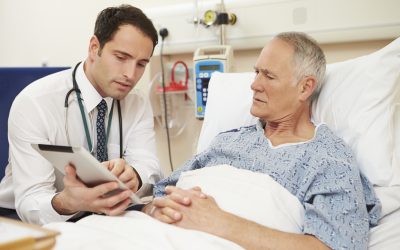Addiction to drugs is a powerful and often devastating condition that affects millions of people. Overcoming addiction requires a structured and holistic approach, with the goal of helping individuals regain control of their lives and build a foundation for long-term sobriety. Comprehensive drug rehab programs are specifically designed to provide the support, tools, and resources necessary to tackle addiction on multiple fronts.
What is a Comprehensive Drug Rehab Program?
A comprehensive drug rehab program is an organized treatment plan that addresses both the physical and psychological aspects of addiction. It typically includes a combination of medical detox, therapy, counseling, and aftercare services. The goal of a drug rehab program is to help individuals stop using substances, understand the underlying causes of their addiction, and develop the skills necessary to live a healthy, substance-free life.
Comprehensive drug rehab programs focus on the whole person, taking into account their emotional, mental, physical, and spiritual well-being. These programs may vary in length, intensity, and structure, but they are all designed to support individuals throughout every stage of their recovery.
What to Expect During the First Stages of Rehab
1. Initial Assessment and Detox
The first step in any drug rehab program is the initial assessment, where individuals undergo a thorough evaluation by medical professionals. This assessment helps determine the severity of their addiction and any co-occurring mental health issues. Based on this evaluation, a personalized treatment plan is developed.
For individuals who have a physical dependence on drugs, medically-assisted detox is often the next step. Detox helps the body safely eliminate harmful substances and manage withdrawal symptoms. Medical supervision is essential during this process to ensure the safety and comfort of the individual. Once the detox process is complete, individuals are typically ready to begin the therapeutic aspects of treatment.
2. Therapy and Counseling
The core of a comprehensive drug rehab program is therapy. Therapy is essential for addressing the underlying psychological, emotional, and behavioral issues that contribute to addiction. There are various types of therapy available, each aimed at helping individuals understand their addiction and learn how to manage it effectively.
- Cognitive Behavioral Therapy (CBT): CBT is a widely used therapeutic approach that helps individuals recognize and change negative thought patterns and behaviors associated with addiction.
- Individual Therapy: One-on-one therapy sessions provide a safe space for individuals to explore their personal struggles, trauma, and triggers related to addiction.
- Group Therapy: Group therapy allows individuals to connect with others in recovery, share their experiences, and offer mutual support.
- Family Therapy: Addiction often affects families, and family therapy can help rebuild relationships and provide loved ones with the tools to support their family member in recovery.
3. Building Life Skills and Coping Mechanisms
A key aspect of addiction treatment in drug rehab is teaching individuals essential life skills that help them navigate daily challenges without turning to drugs or alcohol. These skills can include:
- Stress Management: Learning how to handle stress in a healthy way is crucial for long-term sobriety. Rehab programs often include techniques like mindfulness, meditation, and deep breathing exercises.
- Communication Skills: Effective communication is important in both personal and professional relationships. Individuals in rehab are often taught how to express themselves constructively and resolve conflicts without resorting to substance use.
- Time Management and Responsibility: Creating a daily routine and managing responsibilities is important for maintaining stability and avoiding triggers.
What Happens After the Initial Treatment?
1. Relapse Prevention and Aftercare
A comprehensive drug rehab program does not end once the individual completes their inpatient treatment. In fact, the final phase of rehab—relapse prevention and aftercare—is critical to ensuring long-term success. Aftercare includes ongoing support and resources that help individuals maintain their sobriety once they return to their regular lives.
Aftercare may include:
- Outpatient Therapy: Continuing therapy sessions on an outpatient basis ensures individuals stay connected to their treatment program.
- Sober Living Homes: For individuals who need a structured, drug-free environment to continue their recovery, sober living homes offer a safe place to live while transitioning back to independent living.
- Support Groups: Ongoing participation in support groups like Alcoholics Anonymous (AA) or Narcotics Anonymous (NA) can provide individuals with a sense of community and accountability as they maintain their sobriety.
By engaging in aftercare, individuals have the tools and resources they need to prevent relapse and continue their progress.
Holistic Addiction Treatment: The Role of Whole-Person Care
A holistic addiction treatment approach focuses on healing the mind, body, and spirit. Comprehensive rehab programs often incorporate holistic therapies, such as yoga, meditation, acupuncture, and nutritional counseling, to promote overall wellness. These therapies help individuals reconnect with their bodies, manage stress, and promote physical and mental healing.
Integrating holistic therapies into the treatment process helps individuals heal on a deeper level, supporting their journey to long-term sobriety. This balanced approach is essential for lasting recovery and ensures that individuals receive the full spectrum of care during their treatment process.
Conclusion
A comprehensive drug rehab program is the cornerstone of addiction recovery. Through medical detox, therapy, and aftercare, individuals gain the support and skills necessary to overcome addiction and live a healthy, substance-free life. Recovery is a lifelong journey, and comprehensive rehab programs help individuals build a foundation for long-term sobriety.
If you or someone you know is struggling with addiction and seeking support in Roseville, CA, Roseville Recovery Center offers holistic addiction treatment that addresses both the physical and psychological aspects of addiction. Learn more about our recovery services and take the first step toward lasting recovery.


